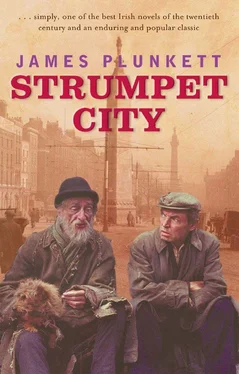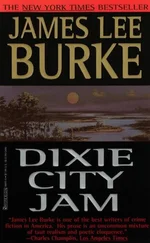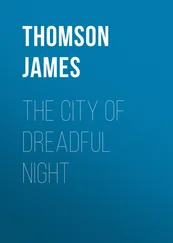When the night sergeant came in at fifteen minutes past eight he put his helmet on the desk and looked around the office without a word of greeting for the young policeman who had risen behind his desk. The sergeant was a burly man with a very red face. He breathed heavily and mopped his brow. The policeman said:
‘Good evening, Sergeant.’
The sergeant looked at the coat-rack and then at the fireplace which was littered with cigarette stubs and empty cartons.
‘Has Dunleavy gone?’
‘Sergeant Dunleavy left sharp at eight.’
‘I see,’ the night sergeant said.
He loosened the neck of his tunic and, turning his back on the policeman, stared out of the barred window.
‘You were up at the hospital?’ the policeman asked.
The sergeant sighed heavily. ‘Aye. And Dunleavy knew that.’
‘He said he was in a bit of a hurry this evening.’
‘He might have waited the few minutes. I did it for him often enough.’
The policeman did not want any part in the quarrels of his superiors. So he said:
‘How was the youngster?’
The sergeant turned away from the window and looked at him.
‘It’s what we suspected. Meningitis.’
The poor little scrap,’ the policeman said, seeing the red face was tight with pain.
‘They’ll send for me here if there’s a change.’
‘Please God it’ll be for the better.’
‘No,’ the sergeant said, ‘he’ll die. They always do.’
‘Is he the youngest?’
‘The second youngest.’
‘It’s a heavy cross for you, Sergeant,’ the policeman said.
‘It’s bad for a father, but worse again for the mother,’ said the sergeant.
‘It’s hard on the two of you.’
The sergeant went to his desk. He wrote Sergeant J. Muldoon on top of the duty sheet and then with an effort began to examine the papers in front of him. The policeman worked in silence. He could not think of anything to say.
‘What’s in?’ the sergeant asked him. He was finding it difficult to read the reports for himself. The policeman gave him particulars. Then he said:
‘We have a guest in cell No. 3.’
‘What’s he there for?’
The policeman told him about Rashers.
‘How long is he there?’
‘Since early afternoon.’
‘I’ll go and see him.’
Activity helped. The sergeant took the heavy key and went down a passage. The cell was in gloom. Rashers was stretched on the bed, asleep. The sergeant stood over him. Rashers’ heavy breathing reminded him of the child in the hospital, struggling for the life that minute by minute was being prised from his grasp. In an hour or two they would send for him to say that the end was near. He would stand and watch helplessly. There were no handcuffs to hold Death at bay. You could not lock Death up in a cell or let it off with a caution. It was the biggest thief of all.
The sergeant shook Rashers by the shoulder.
‘Wake up,’ he commanded.
Rashers stirred and sat up. He blinked at the strange sergeant.
‘A new one, be God,’ he said.
‘What’s this about refusing to give your name?’
‘I gave the only name I ever knew of,’ Rashers said. ‘Is it lies you want me to tell?’
‘What name was that?’
‘Rashers Tierney.’
‘Who christened you Rashers?’
‘The first woman I remember.’
‘Your mother?’
‘I don’t remember her.’
‘Who then?’
‘A little woman by the name of Molloy that lived in the basement of 3 Chandlers Court. I came to her at the age of four.’
‘From where?’
‘They never found out. Maybe God left me under a dustbin lid.’
‘Where do you live now?’
‘In Chandlers Court. When Mrs. Molloy died she had to leave it. They carried her out. That was when I was fifteen or so. They’ll do the same with me when my time comes.’
Rashers reflected on what he had said.
‘They’ll do it with us all, for that matter,’ he added, ‘you and the sergeant before you, King Edward and Rashers Tierney. We’re all booked for the same trip.’
‘Don’t talk so much,’ the sergeant commanded.
‘It was always my failing,’ Rashers admitted.
‘Did you get anything to eat?’
‘Damn the scrap.’
The sergeant went out, locking the door. A little while later he returned with a mug of tea and roughly cut bread.
‘Take that,’ he said.
Rashers took it and began to eat. The sergeant sat on the bed too, in the warm gloom locked up, a prisoner within himself, his thoughts pacing around and around in his skull. For much of the time they were not thoughts at all, just the name of the child being repeated to him over and over again by some voice which he had no power to silence. The names of Jesus, Mary and Joseph also went through his mind and he prayed to these because he too, like Rashers, had been taught to look to them in trouble. He did not expect a miracle from them. The child was doomed to die. But he wanted comfort, he wanted to feel there was a Court of Appeal, that there was a world beyond this one, a world untouched by sorrow and disease and death, to which the child would go. His child must not cease to exist.
‘I’m going to let you out,’ he said when Rashers had finished.
‘Thanks be to God,’ Rashers said. ‘The oul dog at home will be demented.’
‘Have you money?’
‘Every penny was lifted off of me. Isn’t that what has me where I am?’
The sergeant took a shilling from his pocket and gave it to Rashers.
‘Take that,’ he said.
Rashers looked at it suspiciously. A charity from a police sergeant was one of the impossibilities of his world.
‘Go on, take it,’ the sergeant commanded. Rashers put it in his pocket.
‘Now get on home.’
Rashers collected his bag and his board with the few remaining favours. He found it hard to walk. The sweat had dried on his socks. His feet were numb. He took a set of colours from the board and offered them to the sergeant.
‘You’re a loyal servant who’ll appreciate them,’ he said.
‘I’ve no use for them. Say a prayer for me.’
‘I’ll say a rosary,’ Rashers promised warmly.
They went to the door of the station. The streets were bright still, but the sky had the evening look of waiting. At some invisible point night was mustering to invade it. Rashers pressed the colours into the sergeant’s hand.
‘Take them home for one of the kids,’ Rashers insisted generously.
He hobbled down the street. The sergeant clutched the colours tightly and stared at the street without seeing it. He went back into his office and let the colours fall into the fireplace, to take their place among the dust and cartons and the pile of cigarette stubs.
‘They returned by motor,’ Mr. Belton Yearling informed the company.
‘I was fortunate enough to see them. At a distance, of course,’ Father O’Connor volunteered.
‘Are they dining aboard the royal yacht?’ asked Mrs. Bradshaw.
‘Yes. With his Excellency the Lord Lieutenant and Lady Aberdeen.’ Mr. Yearling’s tone was tinged a little with disrespect. ‘Such a strenuous day for the Queen and the young princess.’
‘I hope we have finished with salutes, anyway,’ Mr. Bradshaw said grumpily. ‘I can’t abide them.’
Mrs. Bradshaw smiled at everybody. The meal had been excellent. Young Father O’Connor, though normally abstemious, had consented to a glass of port after it, in honour of the occasion, and when they retired for music Mr. Yearling’s first request had been for Sinding’s ‘Rustle of Spring’, a piece she was just a little bit afraid of, but which she had managed to play surprisingly well. She flushed with pleasure at their compliments, the more so because, in all modesty, she felt them at that moment to be well deserved. Mr. Yearling had responded on the ’cello with Mendelssohn’s ‘On Wings of Song’ and she accompanied with exquisite sympathy. He played beautifully so that even Mr. Bradshaw was moved at the end to say:
Читать дальше












